It takes quite a few hands to roll grape leaves. So, in September 2020, soon after the first wave of Covid, I visited a friend in Bandra, Mumbai, where a dozen of us spent the day cooking, rolling, chatting and eating at his house. While preparing dolma — a dish linked to Ottoman cuisine — I learnt to not cinch the roll too tightly as it needed space to expand when cooked.
The feast got me thinking about people gathering to share a meal with friends and family — a new, closed-circle way of socialising. Soon, my friend, Anto, a 35-year-old Mumbai-based HR professional, started a no-frills supper club, where she got a dozen or so of us together. Once a month, we would rotate to a different home, make a big meal, and share it.
There are many such supper clubs and private dine-ins that are gaining popularity across the country.
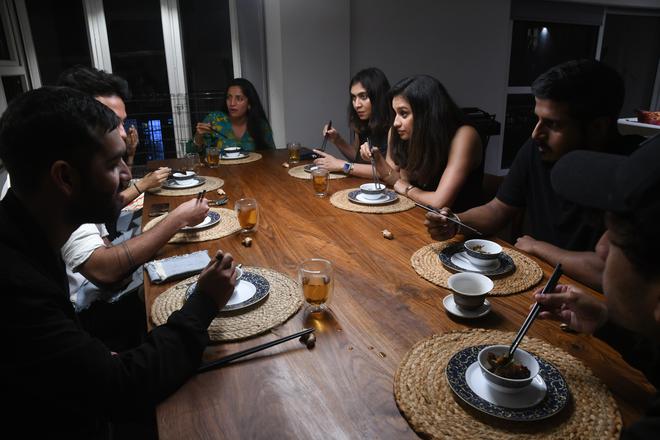
Meet and eat: What are supper clubs?
Supper clubs, also known as dinner clubs or social dining clubs, date back to the United States of the early 20th Century. They came into existence during the Prohibition era when the sale of alcoholic beverages was banned. Certain establishments adopted a clever strategy to circumvent these stringent regulations: they began serving meals, often in remote or rural locales, and discreetly offered alcoholic beverages to patrons. These venues served as social hubs where people could congregate and relish a meal together. Live music, ranging from jazz bands to small orchestras, often enhanced the dining experience, and dancing was a frequent pastime at these venues.
Rules of engagement
The potential of engaging with new people and introducing them to the cuisine of Chengdu, the capital of Sichuan Province in China, has been the driving ethos behind Bengaluru’s Má Là Kitchen. Dongli Zhang, a native of Chengdu, and her husband Aditya Ramakrishnan started it in December last year.
Given the travel restrictions during lockdown, Dongli longed for the flavours of her hometown. Initially, the couple ordered meals from pan-Asian restaurants. Then Dongli decided to prepare homemade feasts and host friends.
“We host supper club during most weekends, offering meals to a limited number of guests,” says Aditya. Each supper club event boasts a unique menu.
Within the realm of Sichuan cuisine, there are 24 distinct flavour profiles, the menu is crafted to highlight these profiles. For instance, the wood ear mushroom salad embodies sweet and sour elements, while the mouth-watering chicken embodies the chilli oil flavour profile known as “hongyou.” The dan-dan noodles showcase a salty and aromatic profile, and the mapo tofu delivers the signature spicy and numbing (ma la) flavour that Sichuan cuisine is renowned for.
Bookings are made via Instagram. Upon confirmation, guests receive the location. The supper club offers a seven-course meal (excluding alcohol) starting at ₹3,500 per person. They commence the supper club experience with a traditional tea ceremony, native to Chengdu.
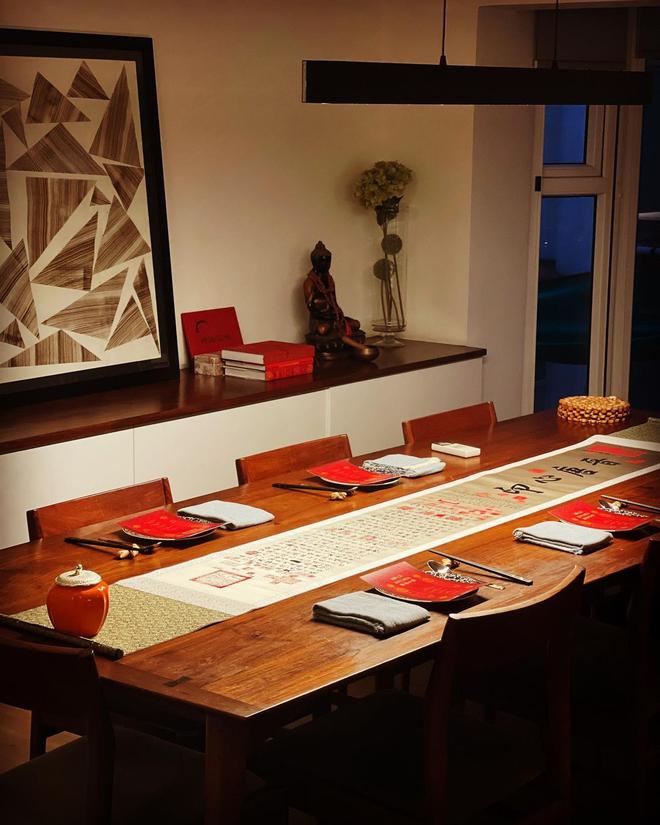
The club also educates eaters (“In a non-preachy way,” says Aditya) about Sichuan’s culture. The couple’s dining table is graced with an embroidered parchment showcasing Lantingji Xu, also known as Preface to the Poems Collected From the Orchid Pavilion, penned by the renowned fourth-Century Chinese calligrapher Wang Xizhi.
Private affair
In another part of Bengaluru (the exact location is shared upon confirmation of attendance), an exotic supper club shoulders the responsibility of finding you new friends. Started by Chaitra Sagar and her husband, Kunal, the club follows a relaxed, come-as-you-are philosophy, which makes it, in Chaitra’s words, “less intimidating”.
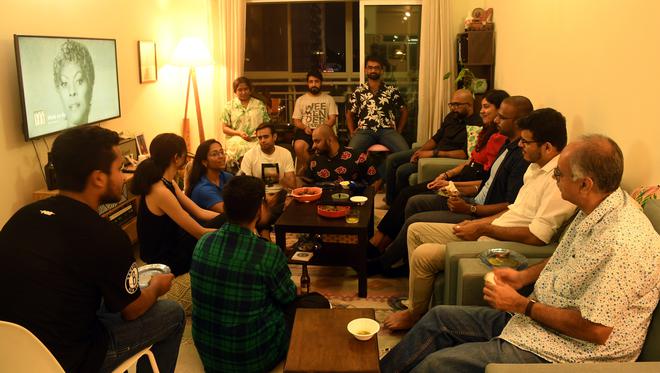
Started soon after the second wave of Covid (in 2021), it was more of a get-together with friends. Each friend was allowed to bring another friend. “We decided to open it up because my husband and I felt we were mingling within a homogenous group of people from the same profession, comprising engineers and finance professionals. We wanted people from diverse backgrounds to join us too,” says Chaitra, who opened the club to strangers in May this year.

The duo shares an invitation on closed WhatsApp groups and other social media platforms. They select 10 people randomly from all the sign-ups and charge them (about ₹1,750) for the meal. “No one knows what food I will be preparing or who else will be there. We haven’t had a sour experience so far,” she says. The club has hosted eight dinners so far (on Saturdays primarily). It has diversified to include different formats — dinners and tapas bar mixers open to more people (15-18 on average). “The tapas bar mixers get a little crowded because we don’t have a huge living room, but that’s the vibe we hoped for. It’s mostly drinks and small plates,” says Chaitra.
The gin gang
Now, a members-only club in New Delhi celebrates gin with private gatherings and has slowly taken on a cult-like following. The Juniper Club, run by former hospitality professional Srikant Suvarna, who worked in the Grand Hyatt in Mumbai a few years ago, was started in 2020 as a casual gathering of friends in the upscale Nizamuddin East residential colony. It now has about 400 members who stay connected through a closed WhatsApp group. Srikant’s reputation as a discerning patron of gin enhances trust; given that a significant portion of the attendees are expats, they rely on him for locally crafted gins.
“Most members are also professionals associated with the United Nations and foreign publications. So, it’s a closed group. I needed to respect members’ request to keep the club private. I don’t promote our bi-monthly events on social media and avoid posting pictures,” says Srikant. Earlier, the meetings would be held at Srikant’s house where gin was served with bar nibbles, but now the club has started tying up with restaurants and gin brands, from Samsara and Terai to Stranger & Sons.
Not just a big-city trend

The popularity of supper clubs extends to smaller cities and not just the metros. In Chandigarh, for instance, 31-year-old Aabhas Ahuja started hosting weekend dinners, limited to a guest list of six people, roughly four months ago. The dining area of his abode in Sector 11 serves as the eating space for visitors, who are informed about the menu via AB’s Weekly Instagram account.
A painting by Picasso serves as an artsy backdrop for the classic Pierre Jeanneret-designed chairs while soft music plays on the gramophone — that is the sight Aabhas likes to treat his guests to. “The area has been designed by my mother, who joins in as a food critic with my brother and his girlfriend every Wednesday to decide and taste the food I plan to serve on Friday, Saturday and Sunday,” says Aabhas.
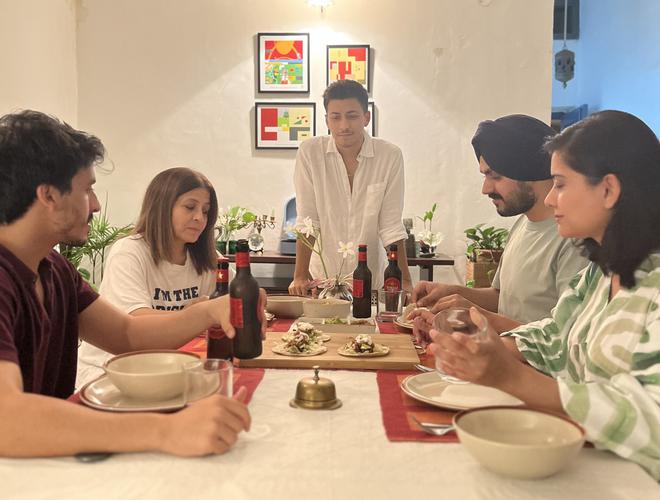
An architect by profession and a culinary enthusiast by passion, Aabhas cooks anything from burgers, tacos and ramen to sushi, butter chicken meals and pot pies. “During lockdown, because of the travel restrictions, I could not travel to Canada for a masters course in construction management. So, I enrolled online and moved to Bir in Himachal. There, I started delivering food to friends and they seemed to like what I cooked. When I moved to Toronto, I continued the tradition on weekends,” he says.
Homesick, Aabhas returned to India in April this year to surprise his family, then decided to stay back. Having hosted nearly 20 supper weekends under his roof, Aabhas observes an uptick in the number of people interested in private dine-in space. “The venture has grown from seven orders to 50 orders from June till now and I recieve more and more queries every week.”
The meal, per person, is priced upwards of ₹500, which includes an appetiser, non-alcoholic drinks, the main course and a dessert. “The guests are welcome to get their own drinks and I arrange wine, beer and other alcoholic drinks on special request,” he sums up.
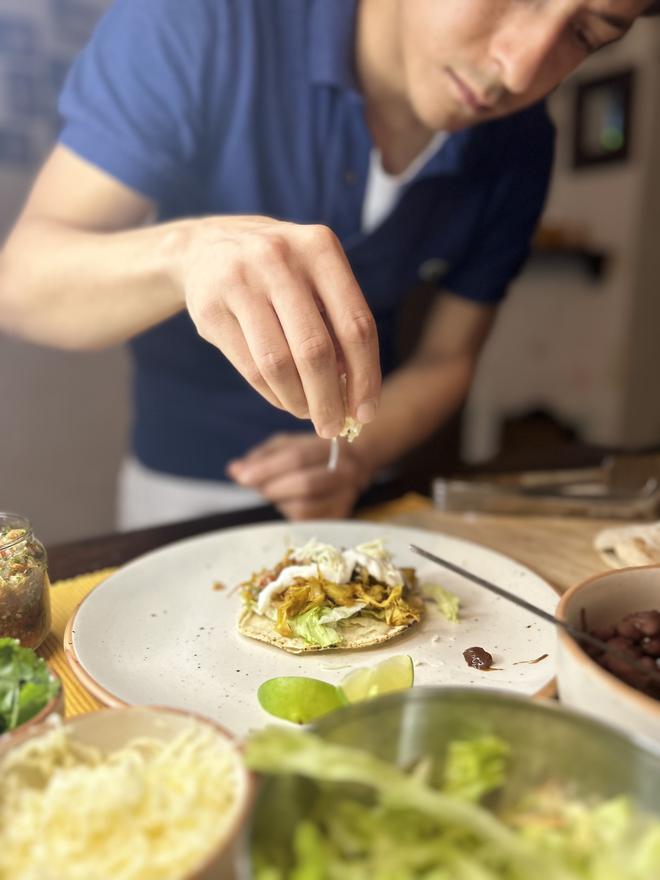
Singapore on a plate
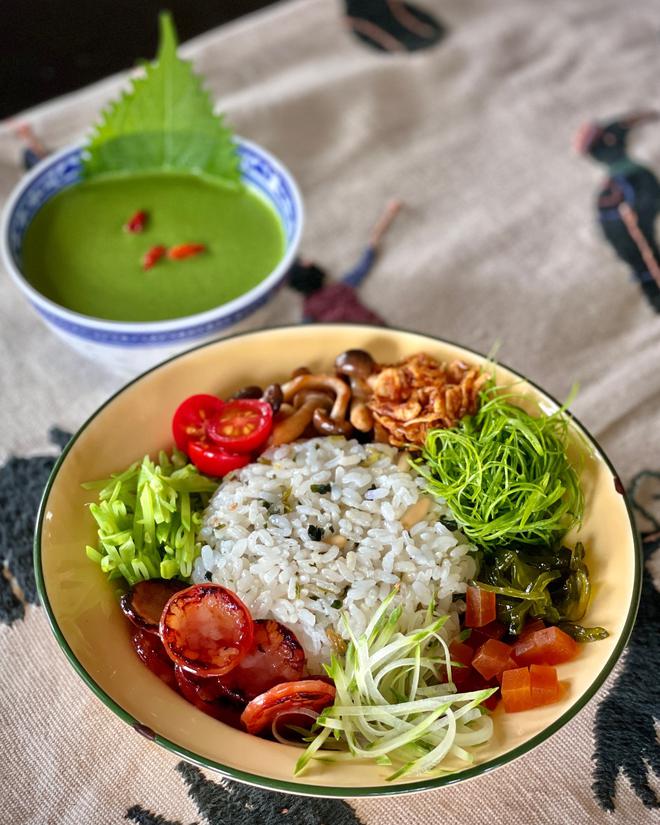
Singaporean Renjie Wong, a representative of his government in India, has called Mumbai his home for over a year. To meet new people, he restarted Salon Colaba, a supper club, initially called Salon, hestarted in San Francisco during his tenure there.
The club presents dishes infused with flavours and ingredients reminiscent of Singaporean households. Think thunder tea rice, tiger prawn bisque with heirloom tomatoes and fried tofu skin roll, steamed spiny rock lobster, and Chinese five spice braised buff shank.
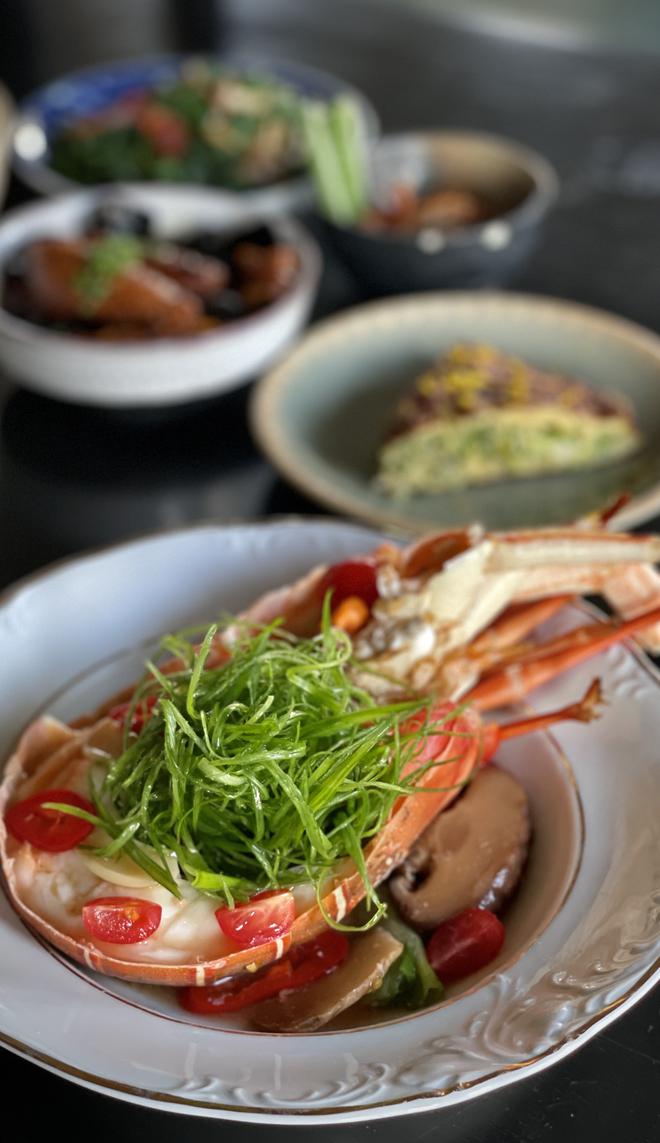
Renjie takes a proactive approach to making his dinners interactive. Beyond engaging conversations, he incorporates art and exhibitions into the supper club experience by asking local artists to showcase their work.
He says he introduced ‘Neighbourhood,’ a photography exhibition centered on Colaba, at one of his supper clubs. “A share of the proceeds from this endeavour was directed towards the Humsafar Trust, an NGO in Mumbai that promotes LGBTQIA+ rights,” states Renjie, adding “For me, the supper club is not a for-profit endeavour. I always aim to give back...” he says. Held once a month, with six seats at the table, dinner is priced at around ₹4,000 per person.
To stay informed, follow Instagram pages @saloncolaba and @wongrenjie.
Renjie believes that food has a remarkable ability to unite people. “When a meal is shared, it encourages people to be more open to others. Particularly when meeting strangers, there is a natural inclination to strike conversations, create connections and foster camaraderie.”







